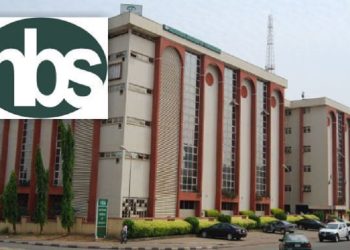Nigeria’s telecommunications sector recorded a sharp decline in foreign investments, dropping by $99.02 million to $14.4 million in the third quarter of 2024, according to the latest report from the National Bureau of Statistics (NBS). This marks an 87% decrease compared to the $113.42 million recorded in the previous quarter.
The sector’s capital importation, which includes foreign funds brought into Nigeria for telecom business investments, also fell by 77% year-on-year, down from $64.05 million in the same period of 2023.
A Sector on a Downward Trend
The telecom industry, once a beacon of growth in Nigeria, has been grappling with declining foreign investments despite its vital contributions to the nation’s economy. The third-quarter slump follows a trend of volatility in capital inflows throughout 2024.
First Quarter 2024: Capital importation reached a significant $191.5 million, a 769% increase compared to Q1 2023’s $22.05 million.
Second Quarter 2024: Foreign investments fell to $113.42 million, a 339% increase over Q2 2023 but notably lower than Q1 2024.
Third Quarter 2024: A dramatic decline to $14.4 million highlights persistent issues within the sector.
Challenges Facing the Telecom Sector
The NBS report attributes this decline to several persistent challenges plaguing the industry, including:
Foreign Exchange Volatility: Difficulty accessing foreign exchange for business operations has discouraged investments.
Policy Uncertainty: Inconsistent regulations have created an unpredictable environment for investors.
High Operating Costs: Rising inflation and infrastructure deficits have increased the cost of providing services.
Despite these setbacks, the telecommunications sector remains a critical driver of Nigeria’s economy, contributing significantly to GDP and offering essential services to millions.
Industry Stakeholders Call for Action
The sector’s challenges have prompted urgent appeals from industry stakeholders, including the Association of Licensed Telecom Operators of Nigeria (ALTON) and the Association of Telecommunication Companies of Nigeria (ATCON). These groups warn that without government intervention, the sustainability of the telecom industry may be at risk.
ALTON Chairman Gbenga Adebayo highlighted the unsustainable nature of current pricing structures:
“Service providers cannot continue to operate under these conditions, especially when the cost of delivering services is far higher than what is being charged.”
Adebayo and other stakeholders have called for a tariff adjustment to offset the rising operating costs and ensure the continued delivery of quality services.
Future Outlook
While the sector’s potential for growth remains undeniable, addressing its structural and operational challenges is crucial for attracting foreign investments. A strategic focus on infrastructure development, regulatory stability, and an improved foreign exchange environment will be necessary to reverse the current decline and unlock the sector’s full potential.
The steep drop in foreign investments serves as a wake-up call for policymakers to prioritize reforms that bolster investor confidence and secure the long-term sustainability of Nigeria’s telecommunications industry.









